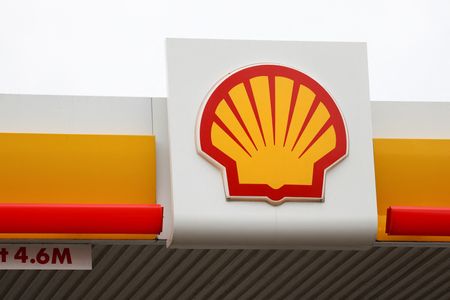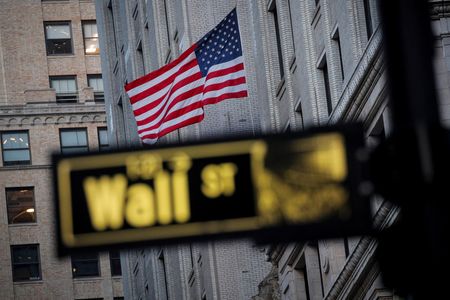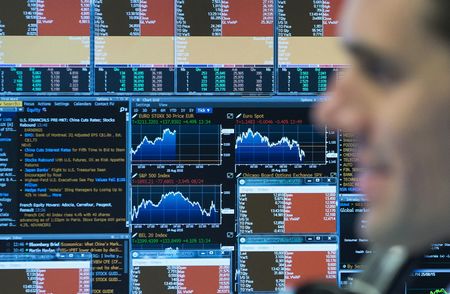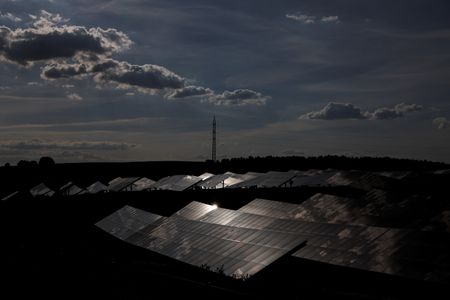By Marianna Parraga and Curtis Williams
HOUSTON/PORT OF SPAIN (Reuters) – Trinidad and Tobago plans to ask U.S. President Donald Trump’s administration to extend a license for Shell and Trinidad’s National Gas Company to develop a key gas project in Venezuela, four sources close to the preparations said.
The U.S. license was first granted in early 2023 as an exemption to Washington’s sanctions on Venezuela. It enabled NGC and Shell to move forward on planning and preparation for the Dragon natural gas project off Venezuela’s coast, aimed at supplying gas to Trinidad from around 2027.
Washington amended the license in 2023 to allow payments in hard currency or in kind to Venezuela and its state company PDVSA for gas supplies, and extended the expiration date to October 2025.
Shell and NGC will need an extension to begin production once they make a final investment decision on the project, which is expected this year, the sources added.
According to planning by the two companies, Dragon’s initial production flow should be around 200 million cubic feet per day, one of the sources said.
U.S. sanctions target the entire Venezuelan oil and gas industry, which is controlled by PDVSA, meaning countries like Trinidad and private operators that abide by the measures require U.S. licenses to export or pay revenue to sanctioned entities including the government, the Central Bank and PDVSA.
Trinidad’s Prime Minister Keith Rowley this month said his government would soon brief Washington on the importance of keeping U.S. licenses to develop gas projects with Venezuela for reasons of regional energy security. He did not elaborate on the planned talks.
Shell and NGC have had access to seismic, geotechnical and well data on the Dragon field, and are satisfied that there is at least the 4.2 trillion cubic feet of gas in place that PDVSA said existed, two of the sources told Reuters.
Shell also completed a seabed survey to ensure it would not encounter any hazards and is now trying to determine where and how many wells will be drilled, the pipeline route to its facilities in Trinidad and the subsea tieback, they added.
Both companies have been working closely with Trinidad’s Energy Minister Stuart Young and Venezuela’s Vice President Delcy Rodriguez, who have separately visited the survey vessel.
NGC deferred questions about the license extension to Trinidad’s government. Shell declined to comment. PDVSA, Trinidad’s energy ministry and the U.S. Treasury Department did not immediately reply to requests for comment.
IN PROGRESS
The Dragon field lies in Venezuelan waters near the maritime border with Trinidad. Trinidad needs the fuel to boost its liquefied natural gas and petrochemical industries, and Venezuela hopes to access cash flow from gas exports.
Despite over a dozen licenses and authorizations granted in recent years, Washington has limited Venezuelan President Nicolas Maduro’s revenue sources after rejecting his claim to have won two reelections. U.S. sanctions on the energy sector were first imposed in 2019.
Maduro and his allies have assailed U.S. sanctions as illegitimate measures that amount to an “economic war” designed to cripple Venezuela, and blamed them for some economic hardships and shortages. They have also cheered what they say is the country’s resilience despite the measures.
If supply contract negotiations between Trinidad, Venezuela and Shell lead to prices close to the most recent gas contracts signed in Venezuela, Dragon’s volumes would generate some $30 million in monthly revenue from sales, of which 20% would go to Venezuela’s coffers as royalty payments, according to calculations by consultancy Gas Energy Latin America.
“Those numbers would hardly represent a problem for the United States,” one of the sources said, referring to potential controversies over revenue to Venezuela.
Trinidad’s energy minister Young last year said Dragon’s potential output is much larger than its initial flow.
If produced, Dragon along with another Shell project called Manatee, which is on the Trinidad side of the border, could supply a combined 1 billion cubic feet of gas per day to Trinidad and its flagship Atlantic LNG project, Young added.
(Reporting by Marianna Parraga and Curtis Williams; Editing by Nia Williams)










